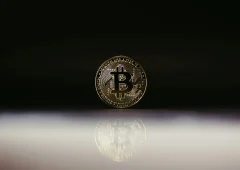Will Politics Be the Next Frontier for Crypto?
10.02.2025 8:00 1 min. read Alexander Stefanov
The head of CryptoQuant, a market intelligence firm, sees a major future role for crypto assets in politics.
Ki Young Ju recently shared his perspective with his followers on X, predicting that the political landscape will eventually integrate tokenized assets due to its inherently narrative-driven nature. He pointed to the emergence of Trump’s Official Trump (TRUMP) token as an early example of this trend.
According to Ki, digital assets thrive on compelling stories that attract capital and talent, creating decentralized internet-based communities. Politics, he argues, naturally fits this model since it is widely relatable, often provocative, and deeply polarizing.
He suggests that political parties could issue their own tokens, allowing supporters to invest in a way that strengthens their sense of belonging while also serving as a real-time measure of public sentiment.
Ki envisions a future where major political organizations launch their own tokens, with potential for exchange-traded funds (ETFs) tracking these assets. In his view, the Trump Coin is just the start of a much larger movement.
Ki also commented on the current state of the altcoin market, noting that only certain categories are performing well amid overall uncertainty. He highlighted that while infrastructure-related tokens like Ethereum have struggled, those linked to institutional interest, stablecoins, and meme coins have managed to remain resilient.
-
1
Stablecoin Issuers Could Soon Be Major Buyers of U.S. Treasuries, Says Senator
22.05.2025 16:00 2 min. read -
2
Singapore Court Orders Multichain Liquidation After Major Exploit
16.05.2025 17:00 1 min. read -
3
Binance Pushes Back Against FTX Lawsuit, Calls Claims “Baseless”
21.05.2025 8:00 2 min. read -
4
Ark Invest Buys Into eToro as Shares Surge on Nasdaq Debut
16.05.2025 8:00 1 min. read -
5
New Ethereum Initiative Targets Institutional-Grade Security Standards
16.05.2025 14:00 1 min. read
ARK Invest Makes Bold Bet on Circle as Stablecoin Giant Enters Wall Street
Circle’s arrival on the New York Stock Exchange sent shockwaves through the market, and Cathie Wood’s ARK Invest wasted no time jumping in.
WazirX Restructuring Plan Blocked by Singapore High Court
WazirX’s bid to restructure and compensate victims of a $230 million hack has been rejected by the Singapore High Court, putting the exchange’s recovery roadmap in limbo.
Tariffs Not a Threat to S&P Momentum, Says Fundstrat’s Tom Lee
Fundstrat’s Tom Lee believes that lingering caution in the stock market could actually be setting the stage for another bullish breakout.
Circle Soars in NYSE Debut Amid Surging Stablecoin Interest — But Not Everyone’s Cheering
Circle, the company behind the USDC stablecoin, made a dramatic entrance onto the New York Stock Exchange on June 5, with its stock skyrocketing 167% by market close.
-
1
Stablecoin Issuers Could Soon Be Major Buyers of U.S. Treasuries, Says Senator
22.05.2025 16:00 2 min. read -
2
Singapore Court Orders Multichain Liquidation After Major Exploit
16.05.2025 17:00 1 min. read -
3
Binance Pushes Back Against FTX Lawsuit, Calls Claims “Baseless”
21.05.2025 8:00 2 min. read -
4
Ark Invest Buys Into eToro as Shares Surge on Nasdaq Debut
16.05.2025 8:00 1 min. read -
5
New Ethereum Initiative Targets Institutional-Grade Security Standards
16.05.2025 14:00 1 min. read


